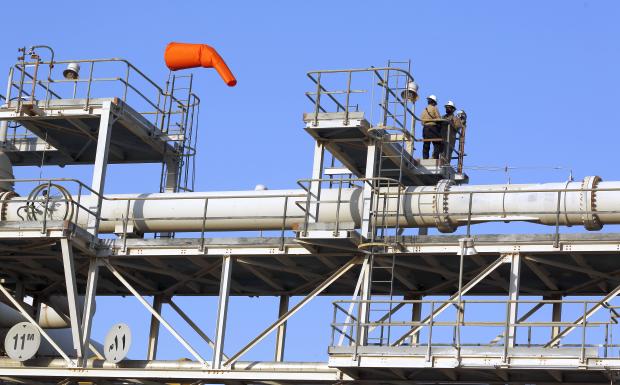Saudi Aramco CEO calls energy transition strategy a failure

HOUSTON, United States — Pointing to the still paltry share of renewable energy in global supply, the head of Saudi Aramco described the current energy transition strategy as a misguided failure on Monday.
“In the real world, the current transition strategy is visibly failing on most fronts,” Saudi Aramco Chief Executive Amin Nasser said at the CERAWeek conference in Houston.
Fossil fuels accounted for 82 percent of global consumption last year, according to a report from consultancy KPMG cited by Nasser, who noted that the International Energy Agency has said oil demand could hit a record this year.
“This is hardly the future picture some have been painting,” Nasser said.
READ: Global energy transition might take 30 years, Saudi finance minister says
“All of this strengthens the view that big oil and gas is unlikely for some time to come out, let alone in 2050,” added Nasser, alluding to a medium-term target that has been seen as a potential phaseout date for crude.
Skepticism
Joining Nasser in speaking skeptically of an imminent energy revolution was ExxonMobil Chief Executive Darren Woods, who said “we’re not on the path” to reaching net zero emissions by 2050.
“One of the challenges here is that while society wants to see emissions reduced, nobody wants to pay for it,” Woods said.
READ: Renewables on pace to overtake coal as top power source by 2025
Nasser called for policies more in tune with the “real world.”
While alternative energy can reduce emissions, “when the world does focus on reducing emission from hydrocarbons, it achieves much better results,” Nasser said.
Last year’s COP28 conference included a call for a transition away from fossil fuels.
But Nasser said the world should “abandon the fantasy of phasing out oil and gas and instead invest in them adequately reflecting realistic demand assumptions.”